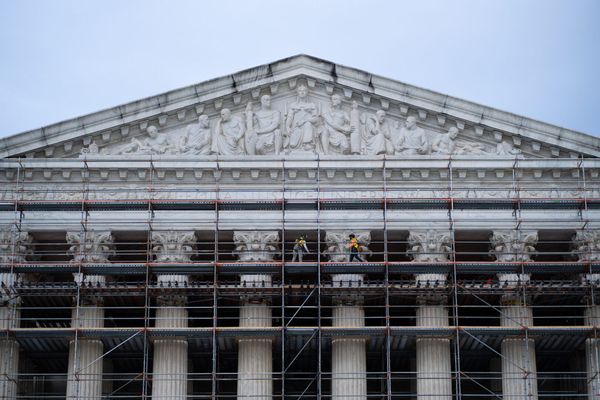
Of course, I know it’s wrong. The Trump tariffs will end in tears…retaliatory tariffs from disgruntled Europeans, higher costs for US car manufacturers who’ll pay more for steel and parts from Canada, a diplomatic standoff with longstanding allies like Japan and crucially, a whopping great increase in the cost of living for the American consumers whom Donald Trump wooed with the promise of lower prices.
Fancy paying 20 per cent more for your flat screen TV, huh? I do realise that there’s a further agenda, viz, to diminish the attraction of US Treasury bonds and to deflate the dollar, but let’s stick to the obvious stuff. This is the end of globalisation…which is a bad thing, no?
Obviously I must agree that Free Trade is a Good Thing and protectionism is a Bad Thing. It’s one of the pieties we’ve all absorbed, that ultimately, everyone is a winner from free trade. It’s just that there’s a stubborn bit of me that doesn’t believe it. At least, not as entirely as I’m meant to.
Have you ever tried to buy something not made in China? I mean, something manufactured, not sandwiches or a steak or a bottle of gin. I tried a while back with a friend in Peter Jones who wanted to buy a toy for a baby. We picked up one adorable ball of fluff after another and looked at the labels … every last one of them was made in China with the honourable exception of a stuffed animal that was made in, I think, Sweden.
At the other end of the must-have spectrum, I tried in another department store to find a lavatory brush that wasn’t made in China, and you know what? There wasn’t one. If you want British-made manufactured stuff, from kitchen scales to dolls to dresses, you know where to go: online, or your local charity shop. It’s one reason why shopping second hand is such a kick: all those labels with Made in England on them.
I should point out that I come from a pottery family; that is, my father was a ceramics designer, recruited by Arklow pottery at a young age and trained up as a model, or mould-maker, in Stoke on Trent for six months in the potteries, the heartland of an industry that was a couple of centuries old. Sorry, this makes me sound like Sir Keir Starmer. But back then, in the Fifties, there were 200 potteries in Stoke on Trent. Now there are something like two.
I have a shameful sympathy with tariffs
A couple of months ago, Royal Stafford closed after 180 years, one of the last that did its manufacturing as well as design and packaging locally rather than abroad. That’s 83 jobs gone and a whole set of skills that took years to absorb. It’s the third pottery factory to close there in two years; most of the rest went decades ago. Wedgwood now employs about 75 people; 20 years ago it was 600. The war in Ukraine didn’t help, since the ban on Russian energy pushed up costs, but the real reason for the implosion of an entire industry is that cheap imports flooded the market and British consumers, thinking solely of their own bottom line, given a choice between quality home ceramics and cheap Chinese, unhesitatingly bought cheap.
That’s why I have a shameful sympathy with tariffs. I think that if there had been tariffs on cheap Chinese imports which undercut British products then the competition would have been less unfair. Because the reason why Chinese products were so much more attractively priced wasn’t the brilliance of the products but the fact that labour was cheaper in China than here – wages there have gone up, thank goodness, but they’re still lower than in the UK.
Even a patriotic company like Lakeland, which sells household stuff that’s catnip to the likes of me, buys its most popular single product from China, viz, heated airers. It goes to the trouble of making sure the women making them are paid properly, which is more than some retailers do, but when it comes to it, making airers in China is way cheaper than here. What you’re buying with your Chinese stuff is Chinese labour and it simply costs less than ours does.
I rather hope that the Trump tariffs bolster US manufacturing, if only to make the point that there is an alternative to the obliteration of factories and the livelihoods behind them. In 2022, 2.6 million workers in Britain were employed in manufacturing, far less than those in Germany. In fact, Britain has slipped to twelfth in the global rankings, behind China, the US, Germany and South Korea. Maybe things will change in the new world order, and Britain will edge ahead of the rest on the back of tanks, aircraft carriers and nuclear submarines rather than loo brushes and china mugs.
But if protectionism could bring back the old, balanced economy, I’d be in favour even if it meant spending more on laptops and mobile phones. Of course, I wouldn’t say so out loud in company. Free trade is the equivalent of religion in contemporary conversation; you don’t speak ill of it lightly.
Melanie McDonagh is a London Standard columnist







